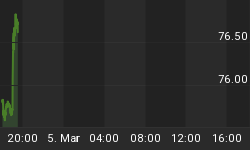In a new socioeconomic trend, divorce rates are dropping as couples who cannot stand each other have become Hitched to the Economy, not able to afford to split up.
The recession and economic turmoil is creating a new class of casualties: Married couples who can't afford to get divorced. In these tough times many people are finding it's cheaper to stay together, even when they can't stand each other.
"The reason that the economy has such an enormous impact on divorce is that most people in the middle-income brackets are getting by on whatever income they have. They're just getting by," said Bonnie Booden, a family law and divorce attorney in Phoenix.
Booden said one out of every two clients is seeking consultations because they can't afford to get divorced. They want to know what other options they might have. Some clients have split up bedrooms and continue to live in the same house, she said. Some split child-care duties so they don't have to deal with each other and live that way until they can figure out what to do. "And I've had people who just throw in the towel and get divorces anyway, creating financial ruin for themselves," she said.
Circuit courts across the country report downturns in the number of divorce and separation filings. Cook County's Circuit Court in Chicago saw a 5% decrease in filings -- about 600 cases -- in the first three quarters of 2008 compared to the same period last year. Similar drops were reported in other cities across the country.
This domestic situation is also confirmed in a poll by the American Academy of Matrimonial Lawyers. The AAML surveyed its members -- all divorce lawyers -- and found that 37% of them have seen a decrease in the number of couples seeking a divorce, while just 19% saw an increase in divorce cases.
"We're in a perfect storm as far as the divorce business is concerned," Nickelson said. "It's not a surprise to me. That's been my experience over the last 35 years. When you have an economic downturn people are not so quick to change their situation."
More People Giving Up Pets
It may be too expensive to give up spouses, but as the economy falters, it's Too Expensive To Keep Pets.
A growing number of Americans are giving up their dogs and cats to animal shelters as the emotional bonds between people and pets get tested by economic ones.
The population growth at animal shelters in Connecticut, Nebraska, Texas, Utah and other states shows how the weak economy is also shrinking the pool of potential adopters. And it coincides with a drop-off in government funding and charitable donations.
The effect has been cramped quarters for dogs and cats, a faster rate of shelters euthanizing animals and some shelters turning away people looking to surrender pets, according to interviews with several shelters and animal advocates.
"It's definitely discouraging for us," said Adam Goldfarb, a Humane Society spokesman. "One of our major goals is to develop and celebrate the bond between people and animals. It's so tragic when families reach a point when they can't afford to care for their pets."
23-year-old Mel Bail of Worcester, Mass., had begun feeding leftovers from family meals to her three cats -- Rory, Ozzy and Mudpie -- before recently deciding to give them up. "When I couldn't pay my gas bill, I knew I had to find another home for the cats," Bail said.
An Associated Press-Petside.com poll found that one in seven owners nationwide reported reduced spending on their pets during the past year's recession. Of those cutting back, more than a quarter said they have seriously considered giving up their pet.
The average annual cost of owning a dog is about $1,400, while the average annual cost of a cat is about $1,000, according to a survey conducted by the American Pet Products Association. The survey suggests there are some 231 million pets -- excluding fish -- in more than 71 million homes in America.
In Omaha, Neb., the Nebraska Humane Society's shelter began tracking for the first time this year those pets given up because of financial constraints. Through mid-November, more than 275 pets were given up because their owners said they couldn't afford to keep them.
The Society for the Prevention of Cruelty to Animals in Virginia Beach, Va., recently began a program called Help Out Pets Everywhere (HOPE) to provide food, medical care and temporary homes for pets belonging to families with financial difficulties. Eighteen applications were received within the first week.
"It's been devastating," said Amy McNally, a spokeswoman for the program. "For somebody to say, 'I can't afford to feed my dog' -- it's a humbling time."
The above stories show yet another twist towards frugality that I have been talking about for quite some time.
Frugality Recap
- March 23: A New Phenomenon: Haggling Over Prices
- April 24: Cool to Be Frugal
- August 10: The Future Is Frugality
- August 26: Frugality Is The New Reality At Citigroup
- October 19: The Age Of Frugality
The real heartbreak in these stories are children living with parents constantly arguing over money, perhaps having to give up their pet as well. Such memories will stay with the kids for rest of their lives. Their attitudes towards debt will be vastly different than the attitudes of their parents.
And changing attitudes towards debt, in both parents and children, are at the heart of the issue as to why Bernanke is fighting a losing, as well as reckless battle against deflation.















